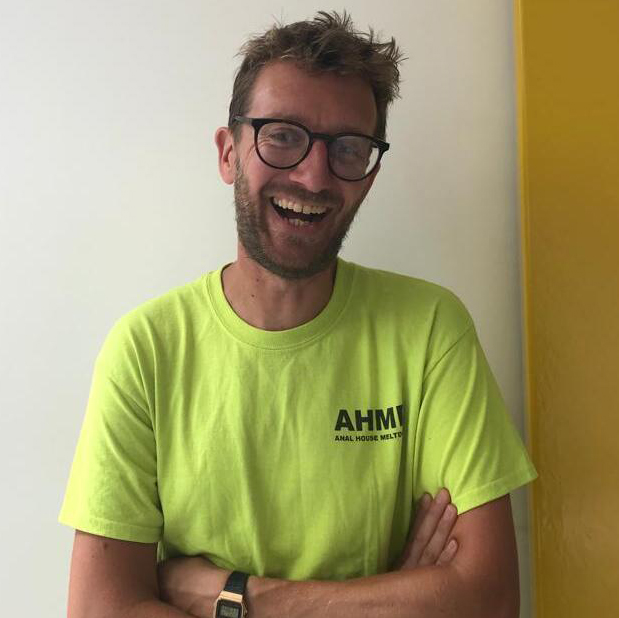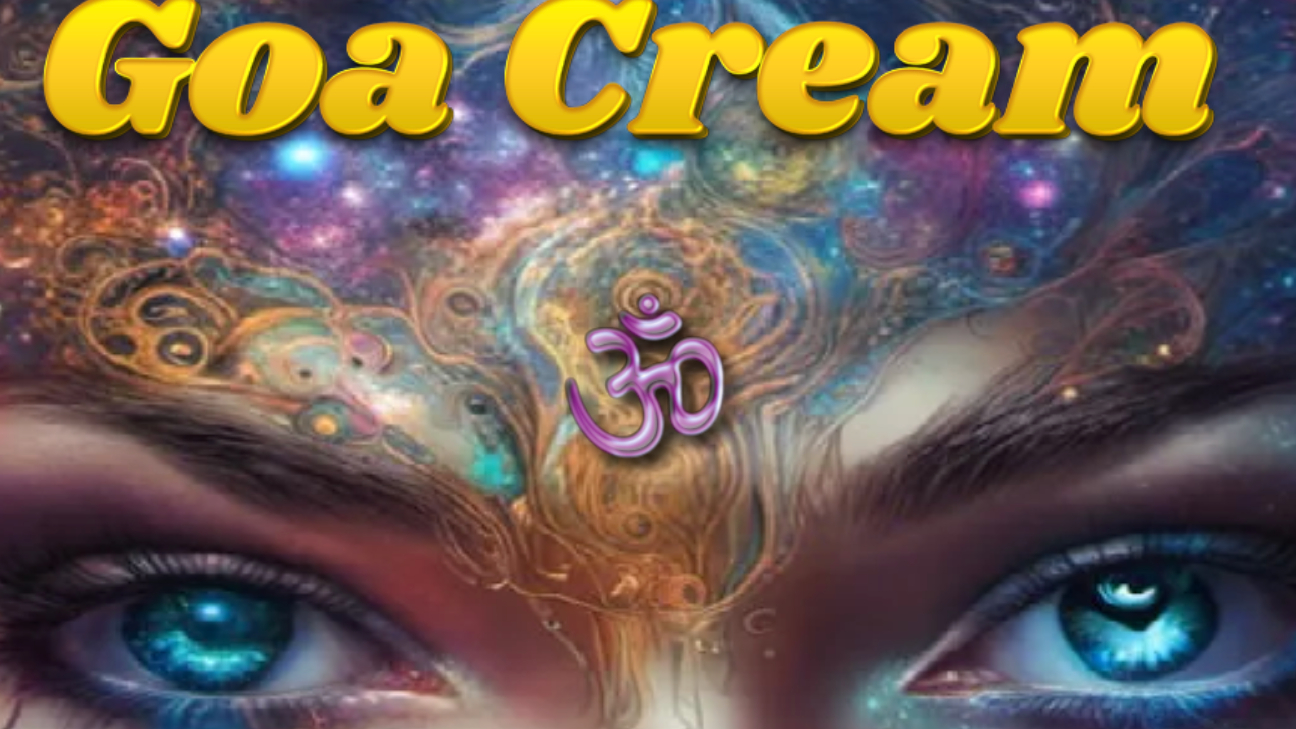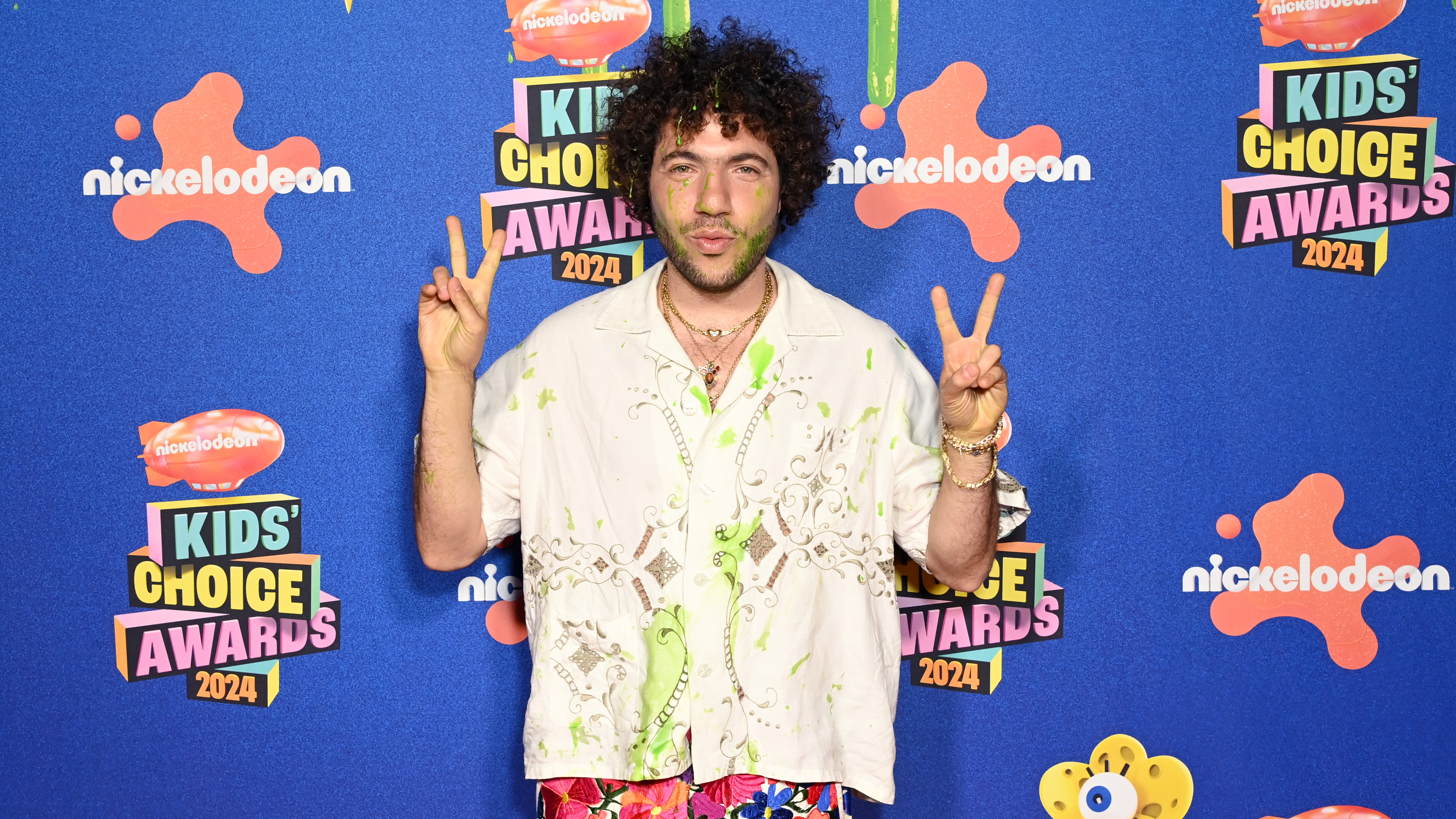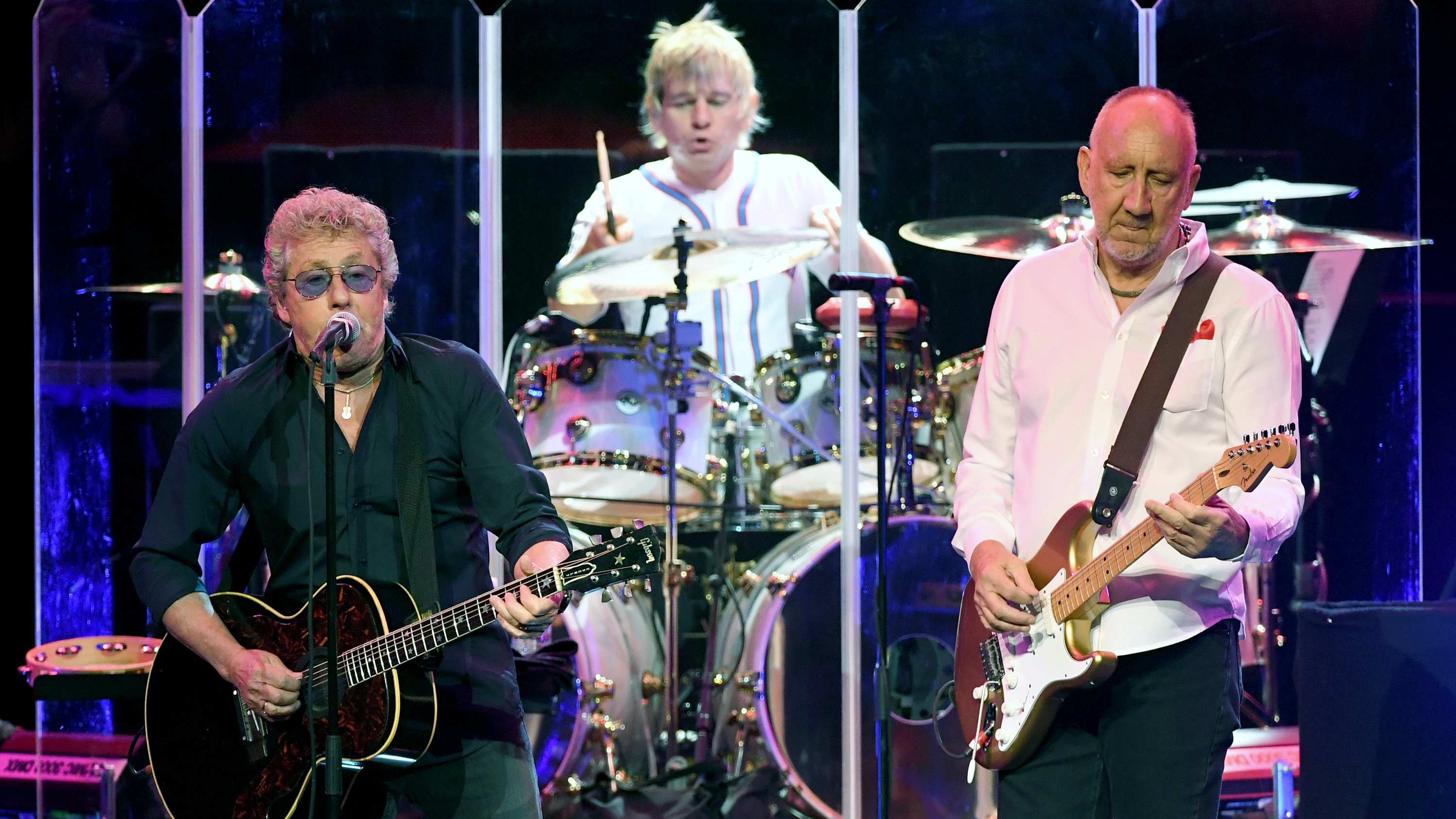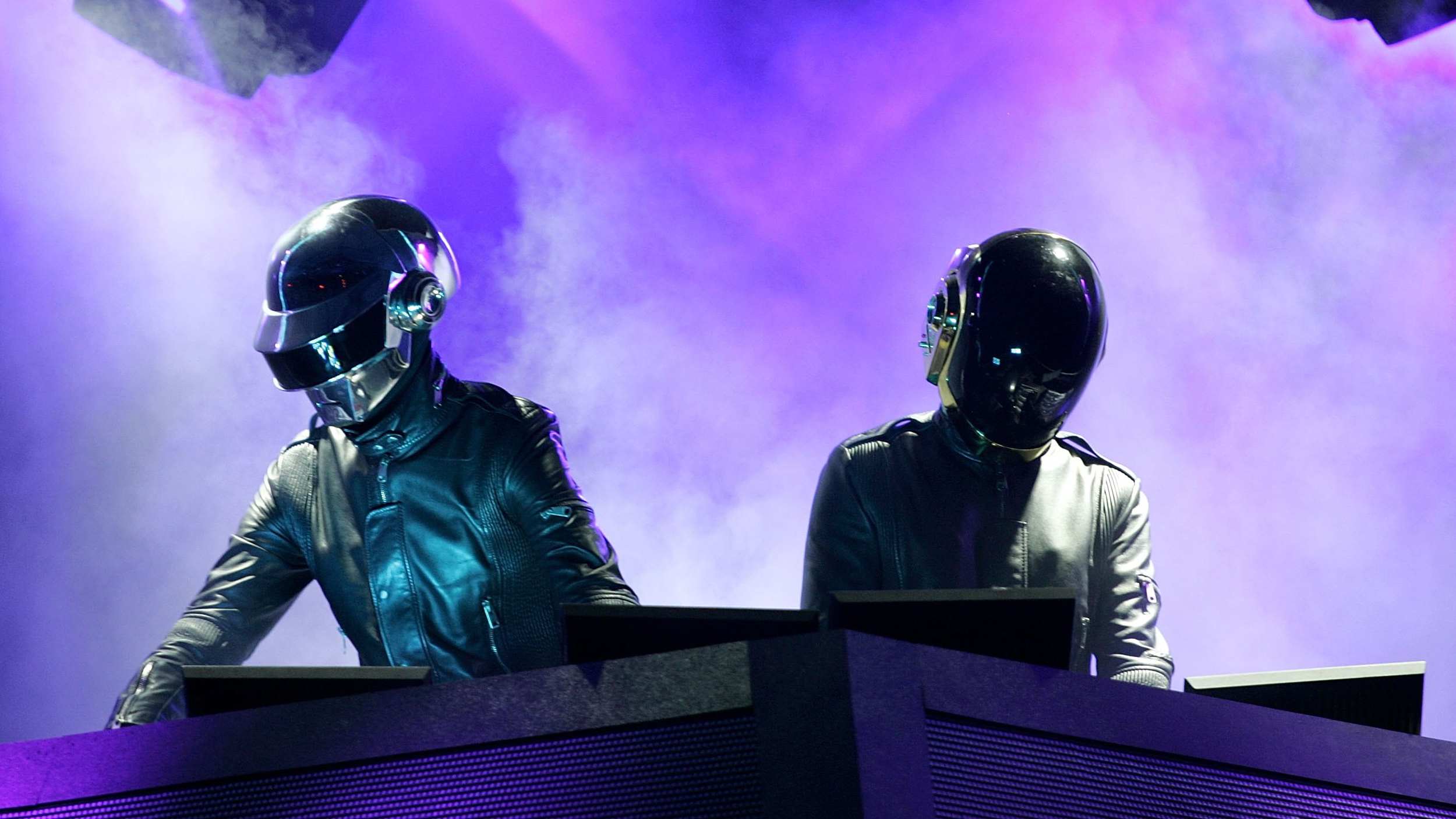Georgia: “You can do so much with a computer, but I still love the aesthetic of my vintage gear”
From session drummer to Mercury Prize nominee, UK artist Georgia’s career continues its ascent. We took flight with her to chart the course of glorious new album Euphoric
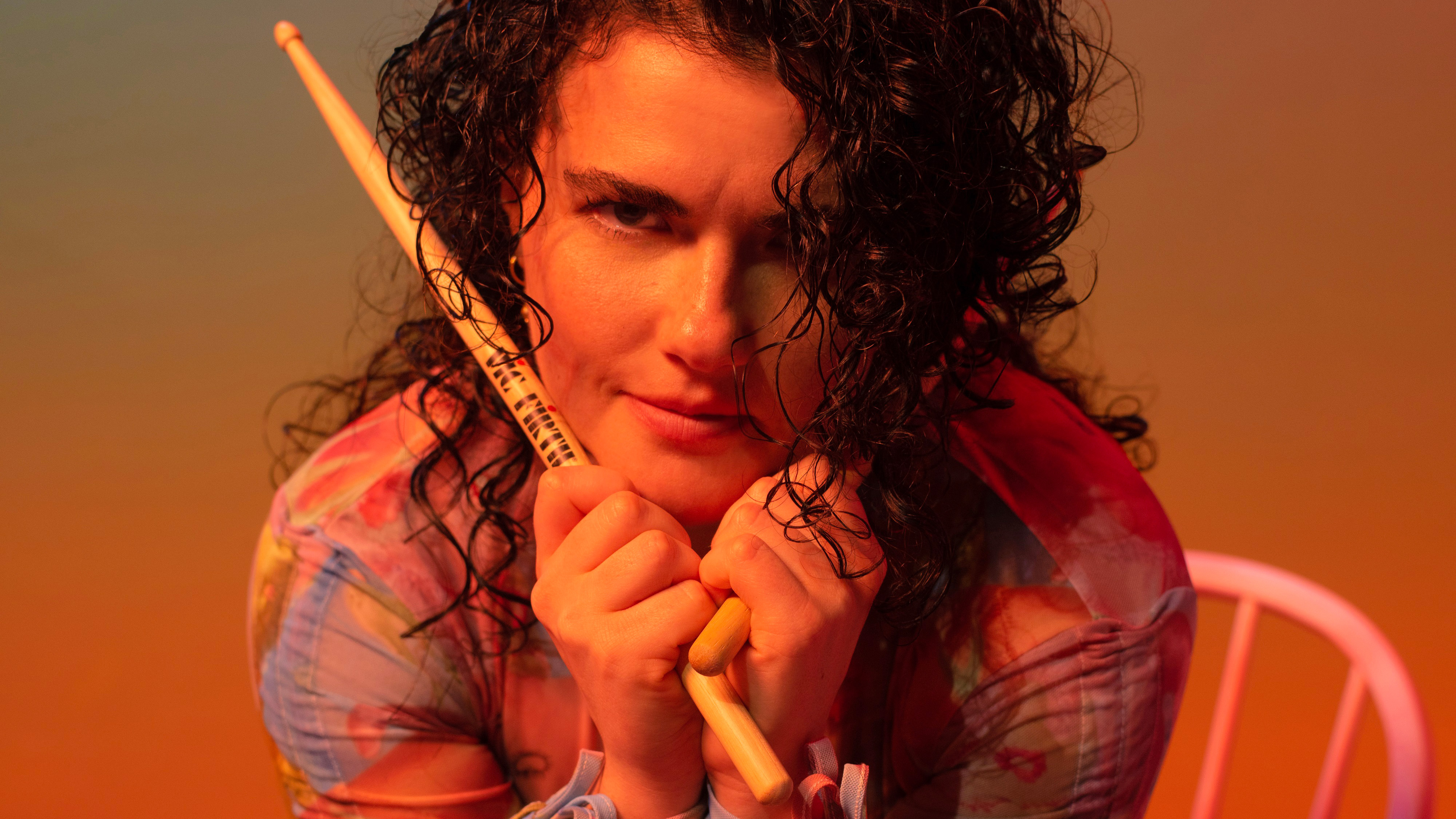
“You never know whether it will work or if the music will be good,” says electronic artist Georgia Barnes on the mechanics of the creative process. “It’s a gamble and you can’t predict anything. So you need to take risks, put yourself in new situations, that’s the thing…”
As one-time live drummer with Kwes and Hot Chip to future-facing hit maker with Mura Masa and, perhaps bizarrely, Shania Twain, Georgia Barnes’ musical mind bristles with innovative ideas and melodic hooks, all pushing against conventional pop music forms.
Euphoric, just released via Domino, is her latest artistic statement of intent, co-produced by one-time member of Vampire Weekend and solo artist, Rostam Batmanglij. Not only was it the first time Georgia worked with another producer but it also saw her taking on her debut writing and recording sessions outside her native London - she upped sticks and moved to LA to make the album.
“Being too comfortable can sometimes make you a bit lazy,” says Georgia on her physical and artistic relocation. “I found taking myself out of my comfort zone was really inspiring, it brought in new ideas and ways of thinking about my music-making process.”
“It was a joy to make this record so I don’t have any regrets or worries about it - how it will be received is now up to the gods.”
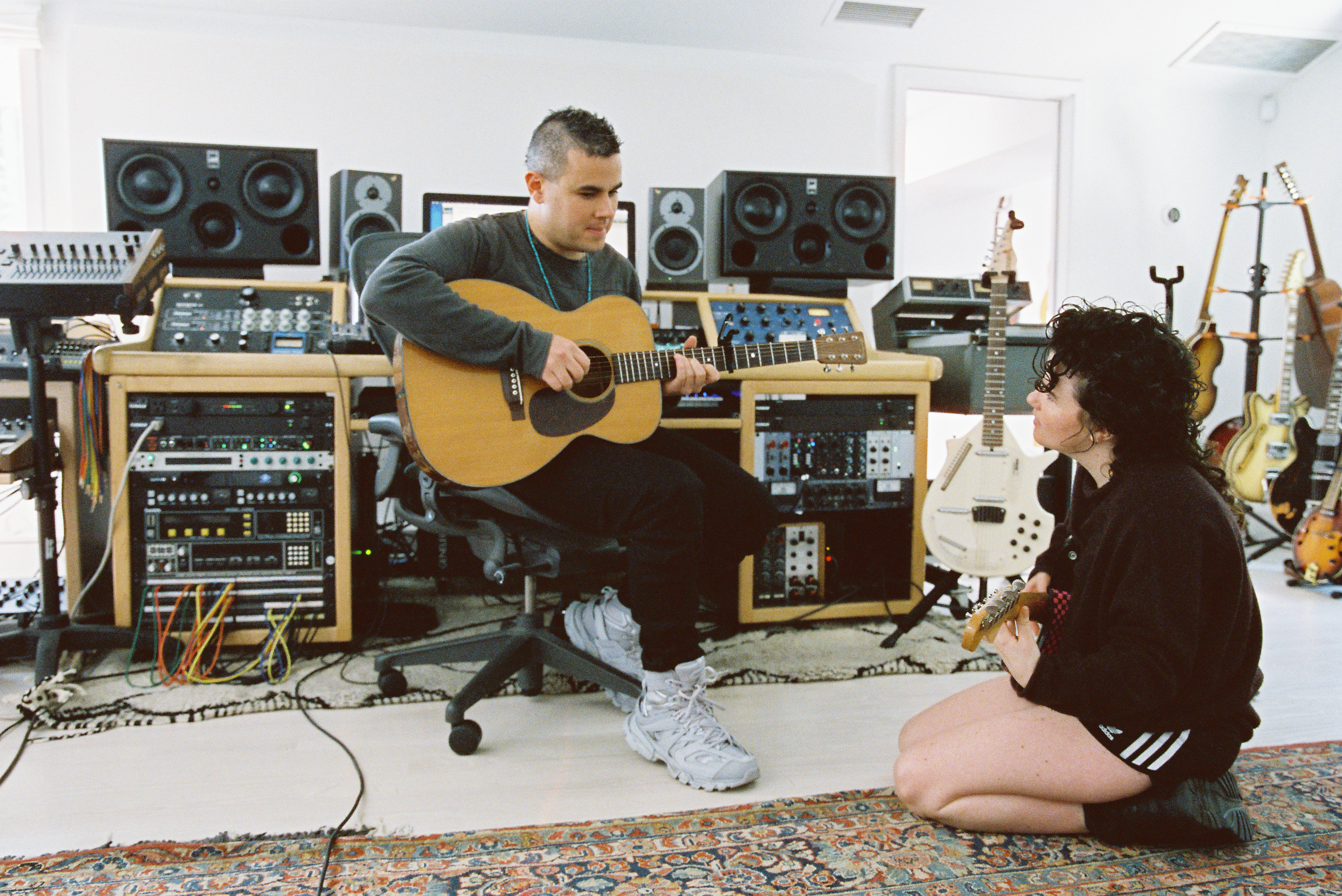
Leftfield record collections
Georgia’s initial music explorations were growing up in London, absorbing the music located somewhere between her mum’s record collection, and her dad’s own success as one half of dance duo Leftfield. Neil Barnes was a creative force behind the rave pioneers and his achievements put a rocket under Georgia’s own aspirations.
“I was brought up around Leftfield, they rapidly went from the underground to the mainstream in the nineties,” says Georgia. “Our family was really impacted, we suddenly moved from a bedsit to a house in north-west London. I saw the fruits of musical labour and that really inspired me to want to become a musician myself.”
Get the MusicRadar Newsletter
Want all the hottest music and gear news, reviews, deals, features and more, direct to your inbox? Sign up here.
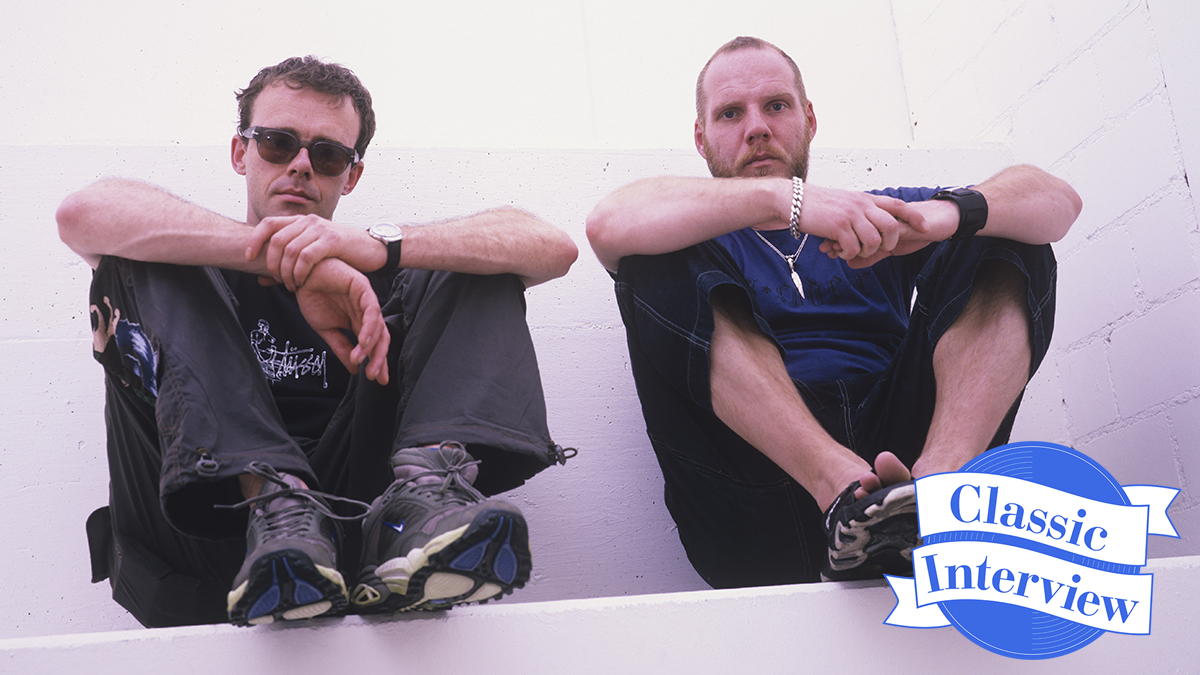
Leftfield: “Leftism wasn’t so much a monkey as a troupe of very large monkeys on our back”
With a domestic backdrop of Joni Mitchell, the Beatles, the Stones, then the soul and dance hits of the eighties, Georgia found her own soundtrack when she was exposed to US hip-hop and UK garage. Artists such as Missy Elliot and Ms Dynamite alongside the previous classics she heard added up to a vibrant cocktail of influences - and it’s one you can hear running through the sonic textures and rhythms of her own music.
“I’m born and bred Londoner and the sound of the nineties and 2000s was very much UK garage,” Georgia explains on discovering her own pet sounds.
“That’s what you’d hear walking down the streets with your mates. A car would pull up and it would be these kinds of beats. I’ve always been a complete sponge and just take in lots of different musical styles”
South London energy
It was an immersion in London’s music scene of the 2000s that led to Georgia moving from a music fan to a creator. As a student at the Brit School, she became an integral part of an underground that has grown to define contemporary music. During that period, Florence + the Machine, Adele, Jamie T alongside the likes of The xx, Hot Chip, Four Tet, Sampha were all connecting, collaborating and honing their craft in venues, studios and rehearsal spaces across the capital.
“It was such an amazing time in London, I remember being at one of the first Boiler Rooms in this fucking shitty loft in Hackney Downs,” recalls Georgia. “It felt so old school and pirate radio-like, I remember being surrounded by all these artists and thinking - this is a scene, I’m in it, and they’re my mates.”
She drummed for close-friend and collaborator Kwes’ live group and went on tour with SBTRKT, Micachu and the Shapes, even supporting MF Doom. Back then, the music bubbling out of London was making waves with producers, artists and music fans across the world.
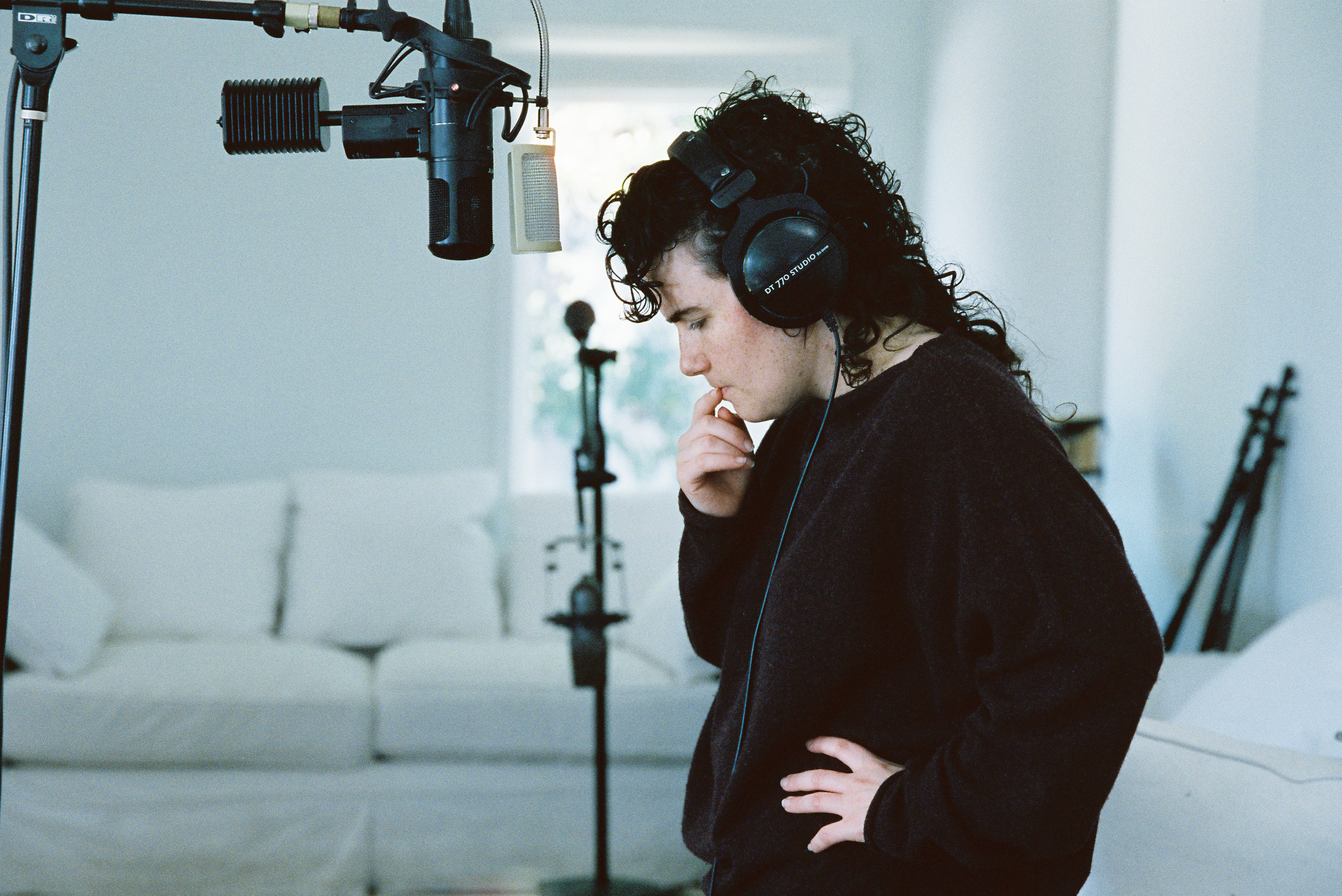
“When Jessie Ware and Sampha released Valentine, it really highlighted what was happening,” says Georgia. “It was an exciting time, a scene that was bursting with creative energy. It was really inspirational.”
It was from performing in this fertile environment that Georgia developed the confidence to release her own solo material. She landed a deal with Domino and released the bedroom electronica of her self-titled debut album in 2015. Written, performed and produced by Georgia in its entirety and recorded in her own home-studio, it led to the more expansive, ear-catching Seeking Thrills, the Mercury Prize-nominated follow up.
“Those first experiences really fed into my own solo work, just being around people being brave and taking that leap,” she says. “It gave me the drive to try and create some music of my own. I knew I could do it, I just needed encouragement and being around these artists really made it happen for me.”
Making connections
After 2020’s Seeking Thrills emerged, with its bubbling bassy pop of Started Out and About Work The Dancefloor, her new chapter opened up around an idea to work with different collaborators. Rostam’s production credits include tracks for artists including Carly Rae Jepsen and Haim and he contacted Georgia after hearing her vocal on the Mura Masa track, Live Like We’re Dancing.
“I was very excited by him reaching out and we kept in contact,” says Georgia. “I ended up being in LA playing some of my first shows, messaged him to see if he’d be up for making some music together and he just so happened to be in town.”
On their first meeting, the pair hit it off and wrote It’s Euphoric, the opening track for Georgia’s new record. The studio chemistry they forged on this first meeting led to many elements that made it to the final version and set the direction for the rest of the album.
“It felt exciting, a new way of doing things,” says Georgia on this creative connection. “I really get on with Rostam, he gives me the space to express myself rather than trying to take my music and push me into how he thinks I should sound.”
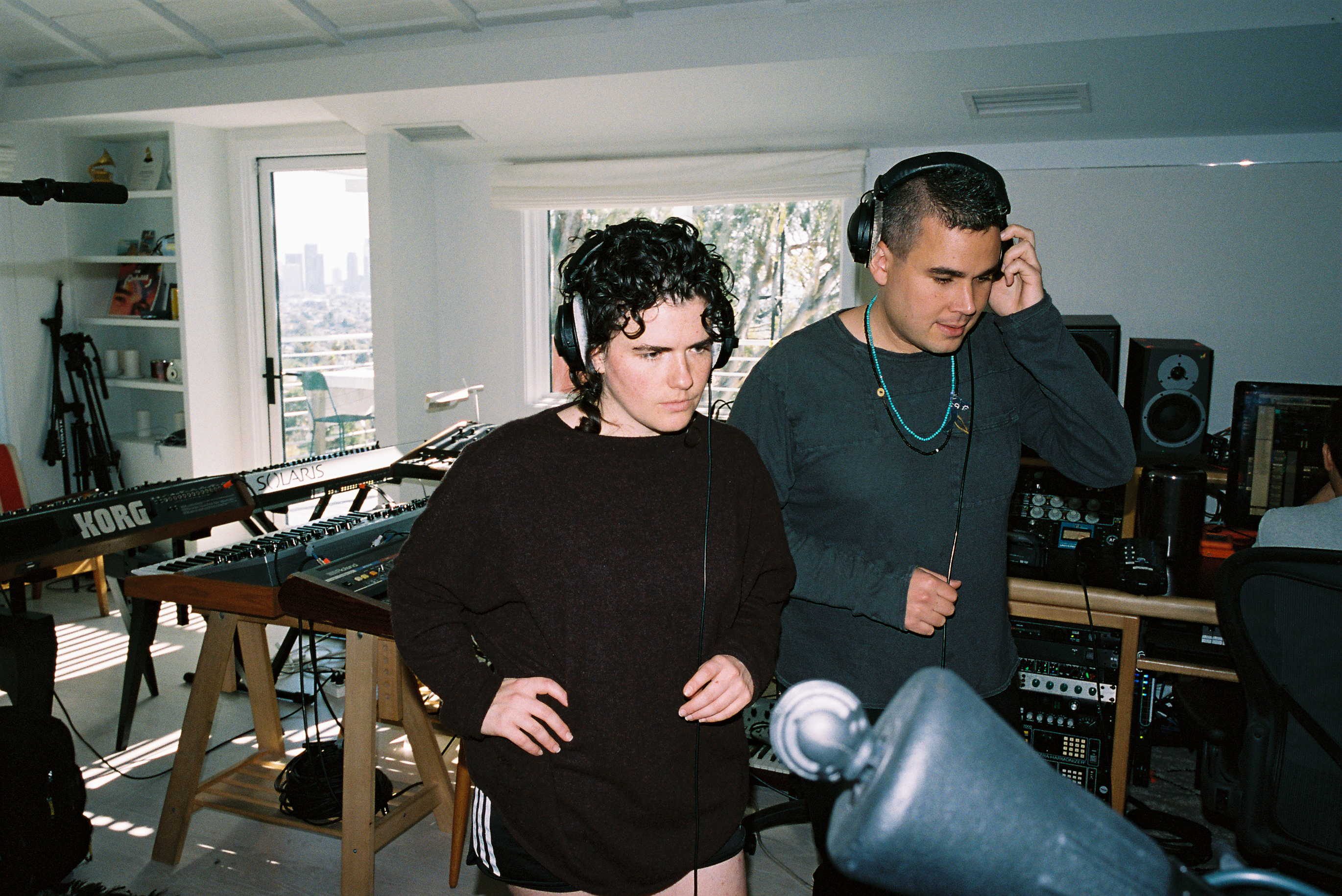
The gear behind Euphoric
With the seeds of a new collaboration sewn, Georgia sketched out many initial ideas in her dedicated studio. Located in her garden and tailored to her process, the space’s acoustics have been treated for her music.
“One of the things for me is to know your room,” she says. “I know I can’t finish a mix here, which dictates the kind of gear I have. I’m not going to invest in high-end compressors or limiters as I know I’ll go elsewhere to do this.”
Instead, an armoury of vintage gear lives inside including a Korg Polysix, Roland SH-101, JD-800, and Korg MS-10. Many of them are hooked up by MIDI to Logic, meaning Georgia can control each instrument from her DAW.
“It’s a really useful creative tool when you’re in the early ideas phase,” says Georgia. “If I hear a Minimoog bass, then I can send it through that. If that feels too heavy for what I’m trying to make, then I’ll send it to the Roland SH-101. This way of working is an important part of my studio.”
“I’m very hands on and love being with this outboard equipment, that’s where I find the fun of it,” she continues. “You can do so much with a computer - but I love the aesthetic of my vintage gear, its presence is inspiring.”
This passion for older instruments and equipment extended into the sessions with Rostam. The drums were recorded through a classic ATR-102 tape machine using a ribbon microphone.
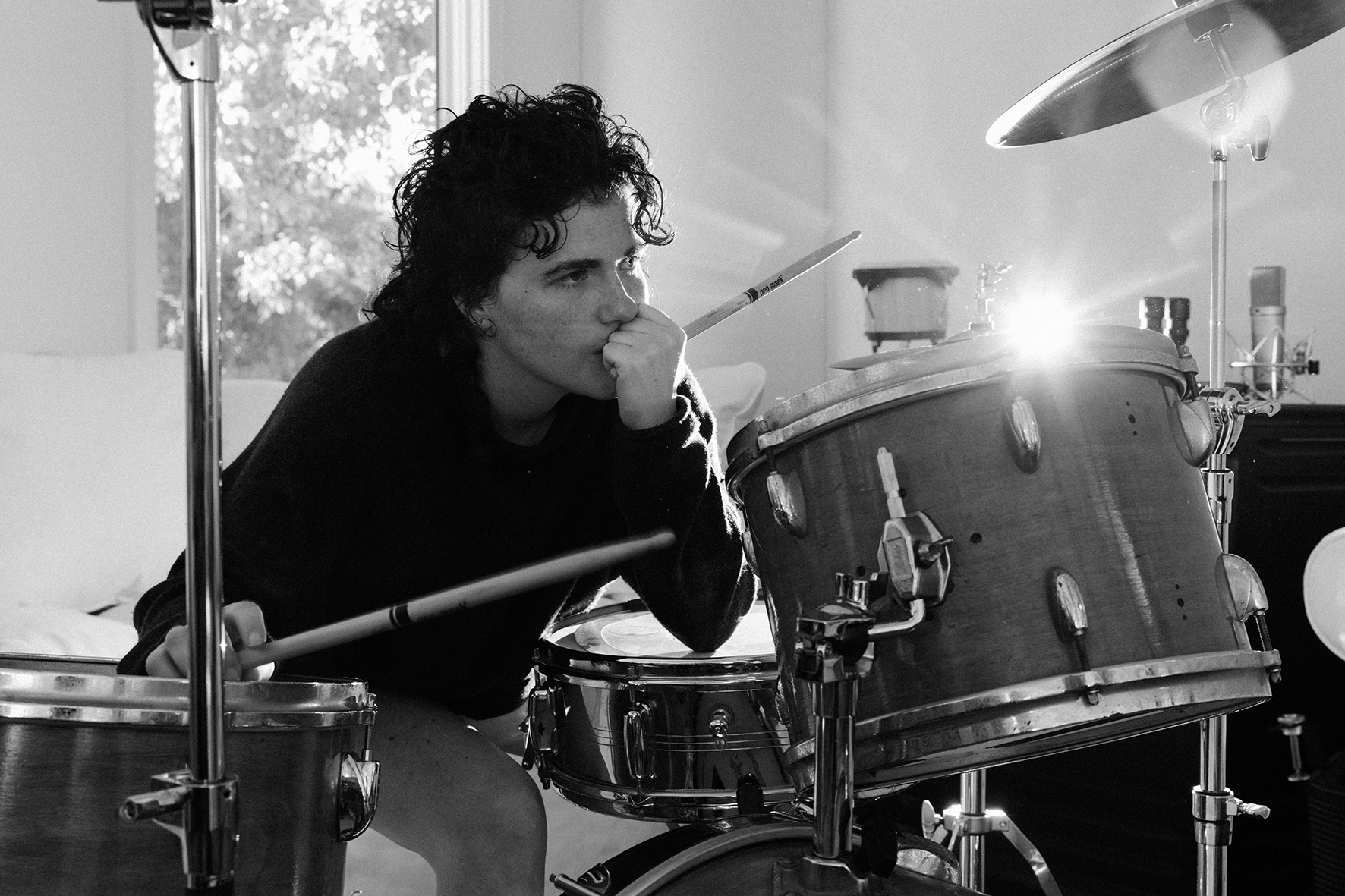
“All the drums were live with the aim of trying to record like they did on classics from the sixties,” she says. “This was the first time I’ve recorded to tape - which is why my drums have such a warm punch to them.”
Georgia also highlights a great vocal chain with a UAD 1176, Neve 1073 preamp and EQ and Sony C800G microphone which all the album’s vocals were captured with. From working with Rostam, she’s also added a Dion Audio subwoofer to her own set up.
“It’s good for vibes in the studio and I have always used their monitors,” Georgia explains. “I also have a pair of NS10s and found these work really well for getting a general start mix. I took that from Mark Ralph, he mixes on the NS10s before anything else and is the master.”
Although music gear and tech are clearly essential components to Georgia’s music, part of the approach for this latest album was to strip the songs back to ensure they would be robust enough to stand up on their own.
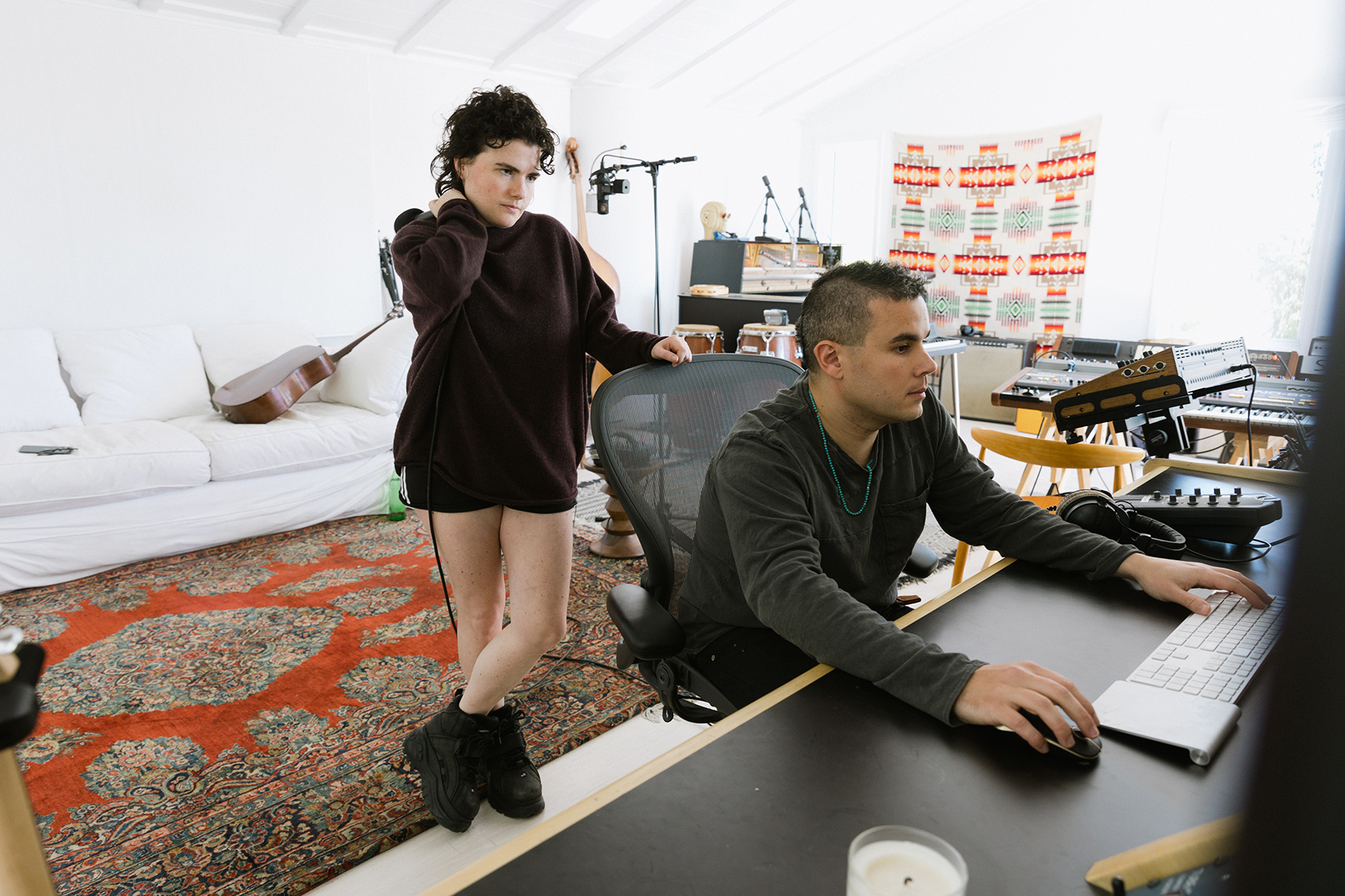
“With the past two records, production came first, then the vocal melody and lyrics,” she states. “This time, I didn’t want to write like that, I wanted to adopt a more classic songwriter approach with the song always the priority.”
When Georgia set out on her adventure to the US, she embarked with embryonic ideas with splashes of production to act as a map. The album came into form over two months of recording in the US.
“That’s what I wanted, to get out of London, have an adventure and explore a new environment to see how it would impact my songwriting,” she says. “It had a real positive effect and I’ve ended up making this colourful, optimistic pop record.”
‘Working out of Rostam’s house really helped set the tone too. It just felt like there was less pressure there and is very much the LA vibe. It was a really cool, open and collaborative way of working.”
Never the Twain shall meet
Georgia’s music making approach sways between capturing blasts of creativity, then editing and refining each track’s different layers of detail. As she’s worked her way through various albums and projects, she has learned to trust her own process and inspiration.
“Sometimes songs come quickly, sometimes they don’t,” says Georgia. “Writing music is a very unusual way of making a living and ultimately you have to back yourself. You could spend a day on a song and think at the end, I won’t use this, it’s no good. Then the next day, because you have gone through all this labour, it just sparks something else that really sings.”
With three albums now under her belt, Georgia believes that aspiring producers and artists should try to avoid any distractions when harnessing their creative powers. Ignoring what’s happening on TikTok, or whatever is trending, can help you find something fresh and exciting.
“Don’t be dictated to by how things will look on social media,” she says. “As artists, music should be the first thing we think about, and this reliance on the visual aspect has really had a detrimental effect on the output of the UK’s mainstream pop music.”
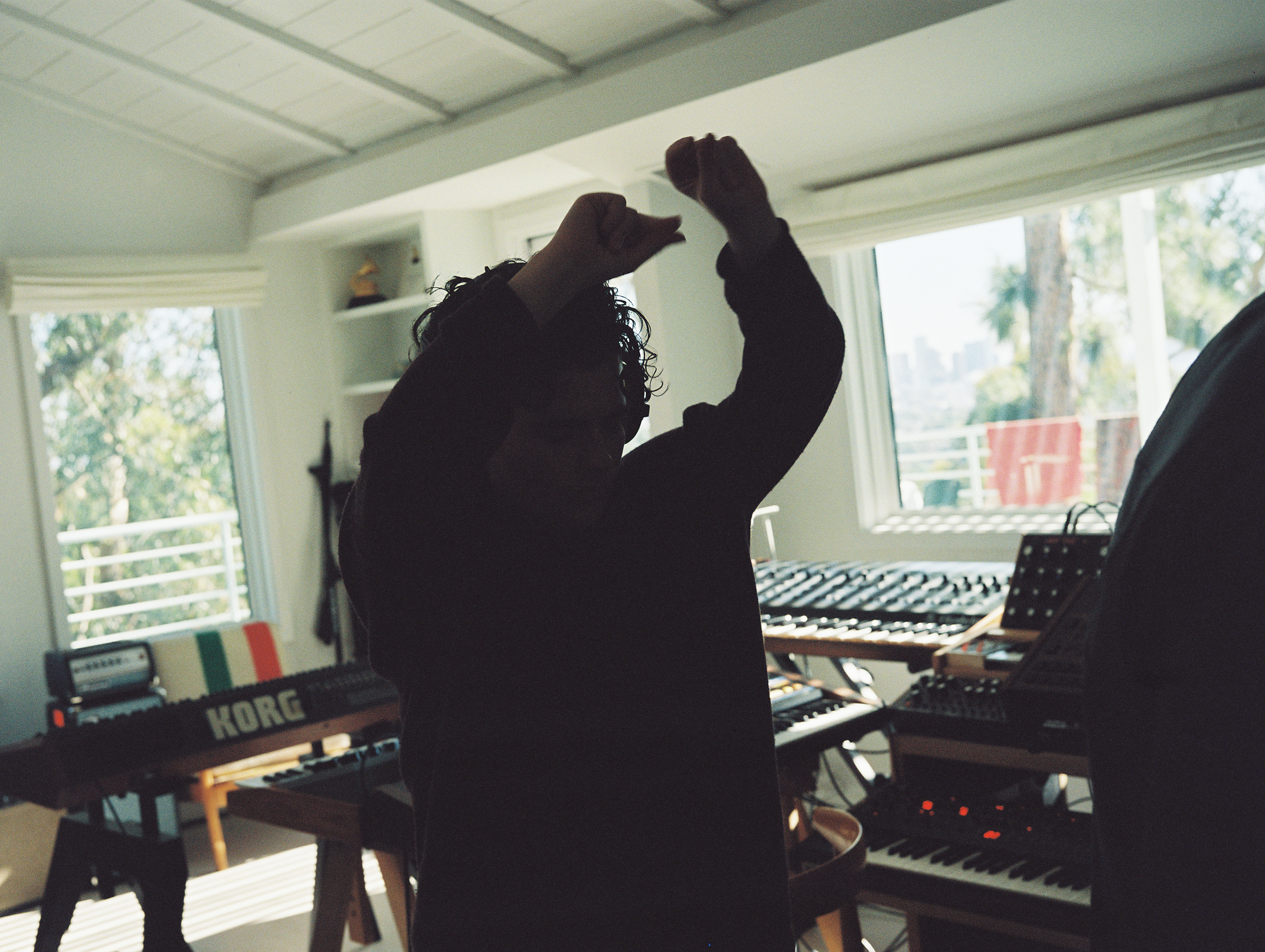
“Without being snobby, as someone who grew up on the Spice Girls, I think artists need to be more experimental and less formulaic. That means looking outwards, listening to new music, experiencing ways in which other people write songs. Otherwise we just produce endless arrays of the same thing and that leaves no room for anyone trying to do anything new and fresh.”
A recent collaboration with country star Shania Twain on her album Queen of Me is definitely a curveball for many Georgia fans and one way of keeping listeners guessing.
“Yes, it must seem very unexpected but working with Shania, just brought something new to me,” laughs Georgia. “It’s cool. We really got on and writing a song together was amazing. But I knew people would be like ‘What’?”
Written in collaboration with long-time producer and supporter Mark Ralph, the roots of the track Got It Good can be traced back to Georgia’s younger self who grew up on Shania Twain’s nineties hits.
“I’m a massive fucking pop head, I love her music, and was completely enamoured with her in the studio,” says Georgia. “She’s a true legendary songwriter, her work ethic was inspiring and she’d be really precise on what she wanted - asking if we could drop this down three semitones - she’s a real master at work.”
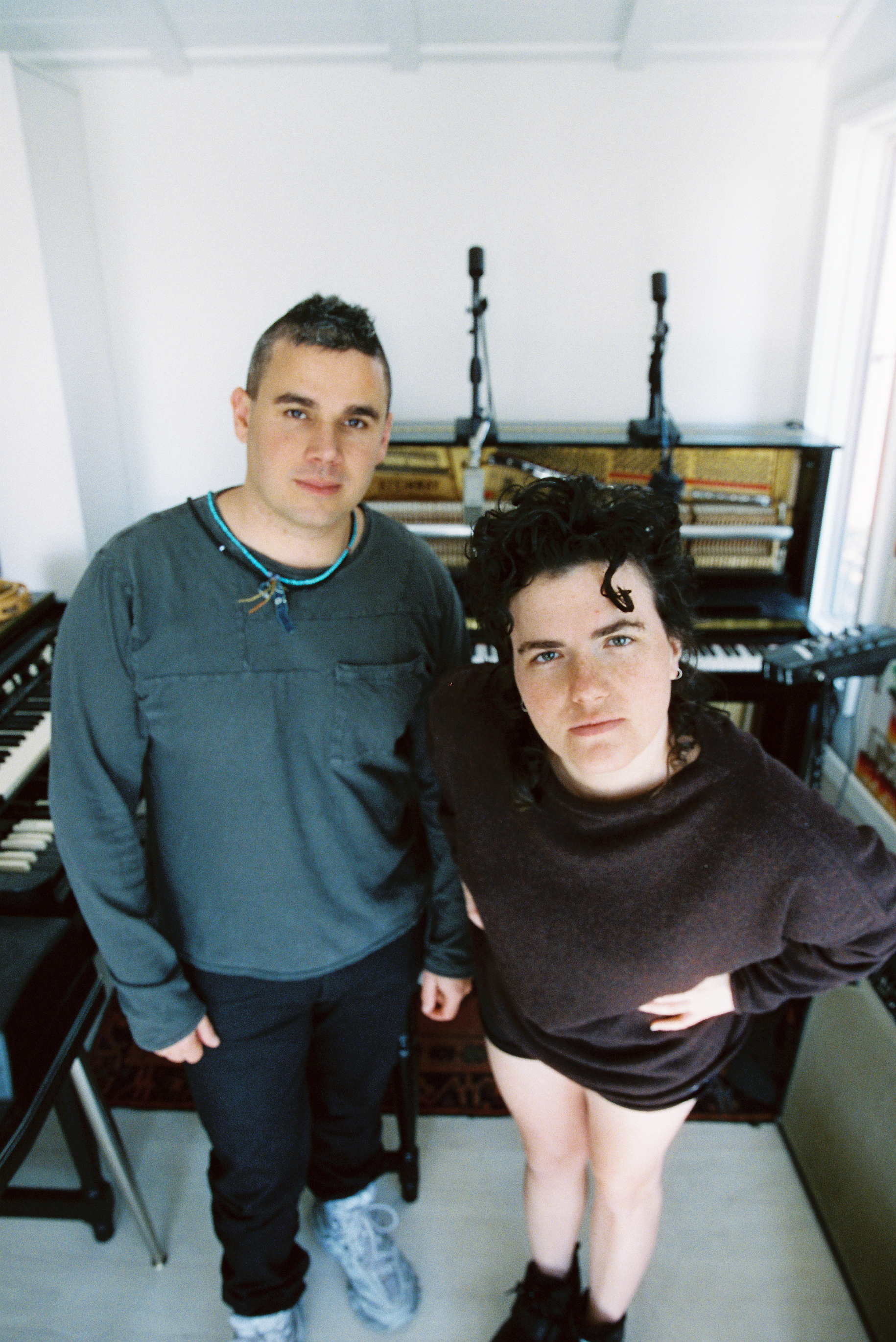
With the new album now out the rest of 2023 will see Georgia hitting the road to perform across the UK. Taking the new songs into the live arena was a major consideration in the recording process and has led to Georgia adding more players to her live group.
“There’s more live instrumentation on this record, particularly with the drums and bass and making sure we could translate this well live was really important,” she says.
“Hopefully we’ll be bringing lots of live shows over the rest of 2023. I want to take this music, translate it in an interesting way to find a new audience. I’ve got a lot of work cut out but the plan is to keep going, to keep swimming.”


Jim Ottewill is an author and freelance music journalist with more than a decade of experience writing for the likes of Mixmag, FACT, Resident Advisor, Hyponik, Music Tech and MusicRadar. Alongside journalism, Jim's dalliances in dance music include partying everywhere from cutlery factories in South Yorkshire to warehouses in Portland Oregon. As a distinctly small-time DJ, he's played records to people in a variety of places stretching from Sheffield to Berlin, broadcast on Soho Radio and promoted early gigs from the likes of the Arctic Monkeys and more.
“Excels at unique modulated timbres, atonal drones and microtonal sequences that reinvent themselves each time you dare to touch the synth”: Soma Laboratories Lyra-4 review
e-instruments’ Slower is the laidback software instrument that could put your music on the fast track to success
